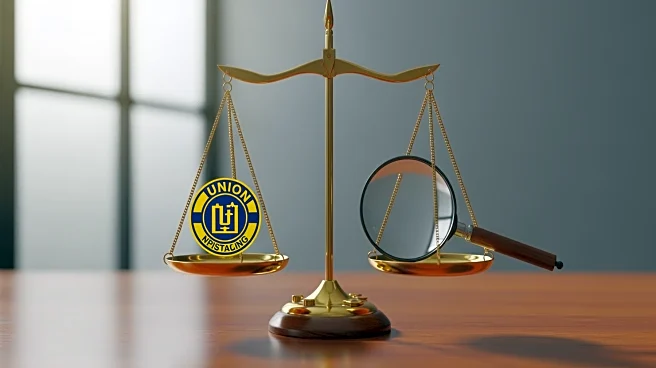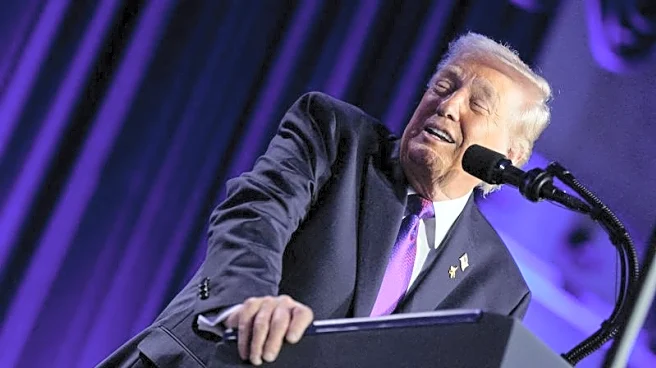What's Happening?
The National Labor Relations Board (NLRB) consists of five board members appointed by the president and confirmed by the Senate, serving staggered five-year terms. The NLRB's primary functions include
investigating allegations of unfair labor practices and deciding which union should serve as the exclusive bargaining agent for employees. Unfair labor practice cases are common, with charges investigated at the regional level. Most cases are settled before reaching an administrative law judge, but decisions can be appealed to the board and further to the U.S. Court of Appeals.
Why It's Important?
The NLRB's role in investigating unfair labor practices and facilitating union representation is crucial for maintaining fair labor practices and protecting employees' rights. By addressing labor disputes and ensuring compliance with labor laws, the NLRB helps foster a balanced relationship between employers and employees. This protection is essential for promoting a healthy work environment and ensuring that employees can advocate for better wages and working conditions without fear of retaliation. The NLRB's actions have significant implications for various industries, influencing labor relations and contributing to the overall stability of the U.S. workforce.










